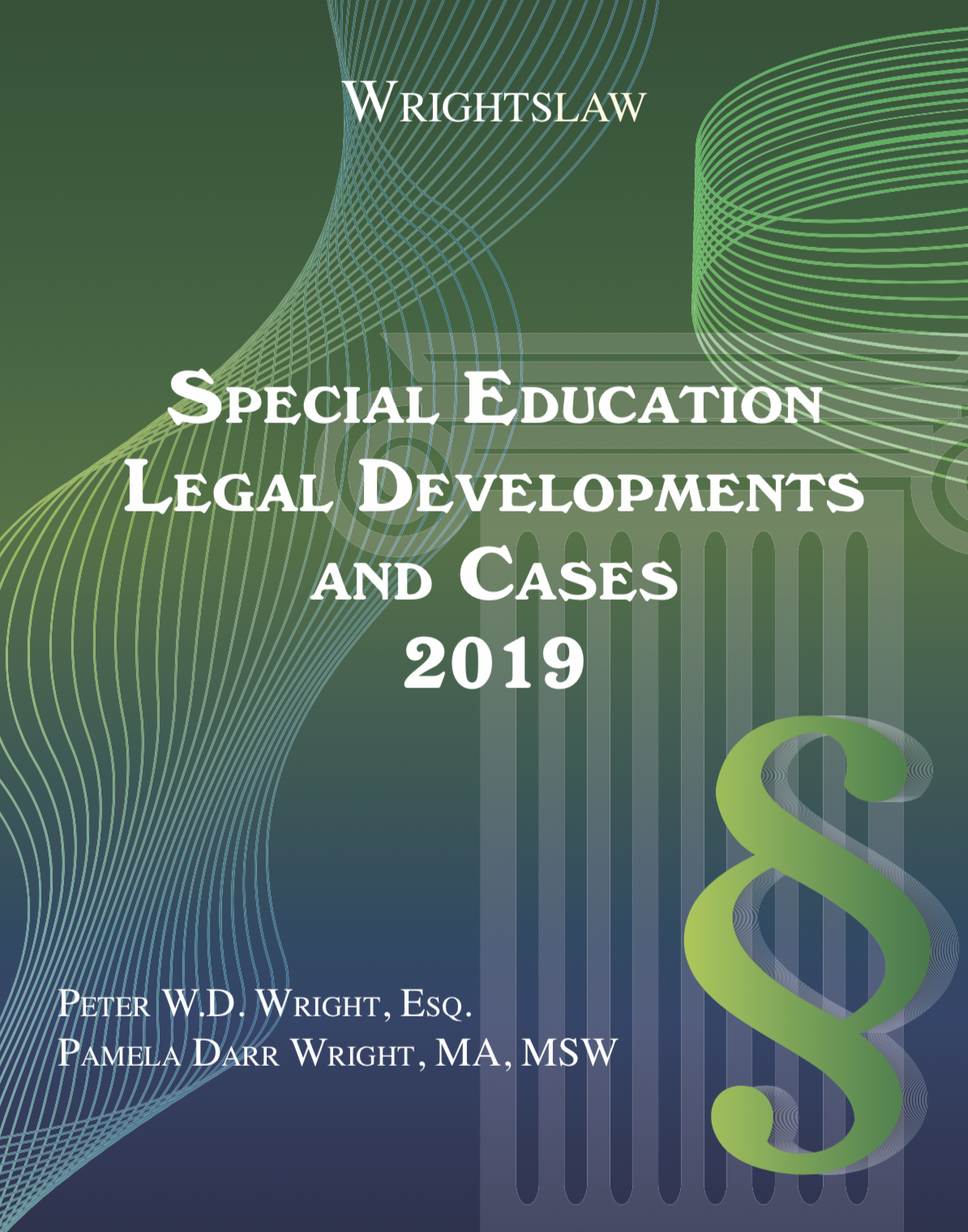Experts
Ponder Whether Parents Will Rush To Court
By
Mark Walsh, Education Week
June 6, 2007
The U.S.
Supreme Court's ruling that parents have rights under the main federal
special education law, and thus may represent themselves in federal
court without the assistance of a lawyer, has legal experts disagreeing
about whether a rush to the courthouse will result.
The May 21 decision in Winkelman v. Parma City School District (Case
No. 05-983) was unanimous on the idea that parents have some rights
to represent themselves without a lawyer under the Individuals with
Disabilities Education Act . But the justices split 7-2 in deciding
that parents have substantive and procedural rights that encompass their
child's right to a free, appropriate public education under the law.
"Parents enjoy rights under IDEA; and they are, as a result, entitled
to prosecute IDEA claims on their own behalf," said the majority
opinion by Justice Anthony M. Kennedy. "The decision by Congress
to grant parents these rights was consistent with the purpose of IDEA
and fully in accord with our social and legal traditions."
"It is beyond dispute that the relationship between a parent and
child is sufficient to support a legally cognizable interest in the
education of one's child," Justice Kennedy added.
His opinion was joined by Chief Justice John G. Roberts Jr. and Justices
John Paul Stevens, David H. Souter, Ruth Bader Ginsburg, Stephen G.
Breyer, and Samuel A. Alito Jr.
Justice Antonin Scalia wrote a partial dissent that Justice Clarence
Thomas joined.
Justice Scalia said he would hold that parents have the right to proceed
pro se, or for themselves, under the IDEA in federal courts when they
seek reimbursement for private school expenses for their child or for
certain of their own procedural rights. But he would not let them proceed
without a lawyer on the basic question of whether their child's free,
appropriate public education was "substantively inadequate."
Justice Scalia also warned that cases pressed by parents without a lawyer
would burden the court system.
"Since pro se complaints are prosecuted essentially for free, without
screening by knowledgeable attorneys, they are much more likely to be
unmeritorious," Justice Scalia said.
Expense Cited
Jeff and Sandee Winkelman, who are not lawyers, brought the case. They
wanted to represent their son in a lawsuit against the 13,000-student
Parma, Ohio, school district, near Cleveland, over the child's educational
placement.
They could not afford a lawyer, and they argued that the special education
law allowed them to represent their son, Jacob, who has a form of autism.
The Winkelmans also contended that they were entitled to argue for their
own rights under the federal law.
Although the parents lost on both issues in the U.S. Court of Appeals
for the 6th Circuit, in Cincinnati, other federal appeals courts have
recognized the right of nonlawyer parents to represent themselves, at
least on procedural issues.
The Winkelmans argued that requiring parents to get lawyers means that
many families are shut out of federal court because of the expense and
because of a shortage of lawyers willing to take on special education
cases. Supporting the family's position were a number of disability-advocacy
groups, as well as the Bush administration.
The Parma district argued that there is no language in the special education
law that supports a departure from the procedural rule that a nonlawyer
cannot represent another party's interests in federal court. Parents
don't have the legal skills to represent their children in court, in
contrast to less formal due-process hearings, where hearing officers
may give them deference, the district said. ("Court to Hear IDEA
Case on Parents' Rights," Feb. 21, 2007.)
The district developed an individualized education program, or IEP,
for Jacob for the 2003-04 school year. The Winkelmans contended that
he needed more support than the district was willing to provide. The
family sought a determination that Jacob did not receive a free, appropriate
public education as guaranteed under the IDEA, that his IEP was inadequate,
and that they should be reimbursed for their tuition costs at a private
school where they have enrolled Jacob, who is 9 years old. That school,
the Monarch School in Shaker Heights, Ohio, charges tuition of about
$50,000 a year.
"It's a good day for parents," Sandee Winkelman said on the
day the decision came down. "Tomorrow we have to go back to Jacob.
But today is parents' day."
Ms. Winkelman, who consulted the library at Cleveland State University
and prevailed on sympathetic law students to help her find materials
on special education law, now says the publicity has prompted lawyers
to come forward and offer their assistance with the family's case. After
winning the right to argue the case on their own, it is unlikely the
Winkelmans will end up doing so, she said.
"I always believed that everyone needs an attorney. You always
have a better chance with one, let's face it," Ms. Winkelman said.
"I hope parents don't have to go without, but they can do it now."
Christina Henagen Peer, a lawyer representing the Parma district, said
in a statement that the district ultimately expects to win a ruling
that it "fully complied with the requirements of IDEA."
Lawyers for school districts said they feared that more parents would
seek to press their children's IDEA cases without a lawyer.
"Now there will be more cases, because parents know they can carry
them through," said Kathleen S. Mehfoud, a Richmond, Va., lawyer
who often represents districts in special education cases.
"The federal civil rules are complex," she added. "Parents
will definitely be at a disadvantage."
Francisco M. Negrón Jr., the general counsel of the National
School Boards Association, said lawyers serve as gatekeepers, advising
parents when they don't have a strong case.
Too Emotional?
"Lawyers have an obligation not to bring forward cases that are
frivolous or without merit," said Mr. Negrón, whose Alexandria,
Va.-based organization had filed a friend-of-the-court brief in the
case on the side of the Parma district. "Parents are undoubtedly
emotionally involved in their children's cases. They might not be able
to bring the same kind of legal analysis to bear."
Advocates for parents and children in special education said they doubted
that federal courthouses would be overrun by parent cases.
Pete Wright, a Deltaville, Va., lawyer who co-runs Wrightslaw, a Web
site about special education law, agreed that nonlawyer parents are
at a disadvantage when it comes to the complexities of pressing a case
in federal court.
Mr. Wright placed the Winkelman decision in the top three or four in
importance of about 10 IDEA cases decided by the justices.
"This is the first case where they have really focused on the rights
of parents, and the role of parents," under the law, he said.
Jim Gerl, a special education law consultant in West Virginia who sometimes
serves as a hearing officer or mediator in that state, noted that the
high court had recently ruled for districts in IDEA cases dealing with
the burden of proof and expert witnesses in due-process hearings. ("High
Court Boosts Districts in IDEA Cases," Nov. 30, 2005, and "Justices
Rule Against Parents in IDEA Case," July 12, 2006.)
Now the pendulum has swung the other way. "This decision gives
clear guidance that there is more or less a family interest in the education
of the child," Mr. Gerl said.
Staff Writer Christina A. Samuels contributed to this report.
| |||||
|
|
|||||
|
Copyright © 1998-2025, Peter W. D. Wright and Pamela Darr Wright. All rights reserved. Contact Us | Press l Mission l Our Awards l Privacy Policy l Disclaimer l Site Map |
|||||







